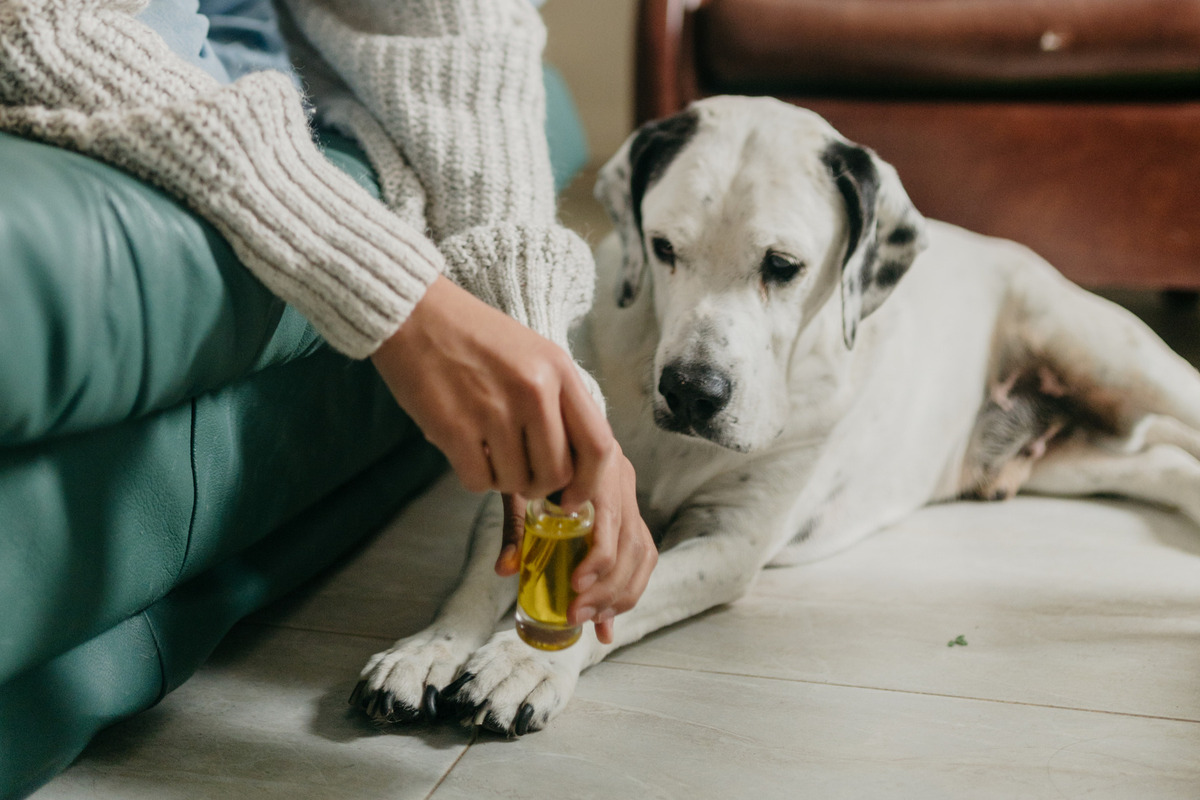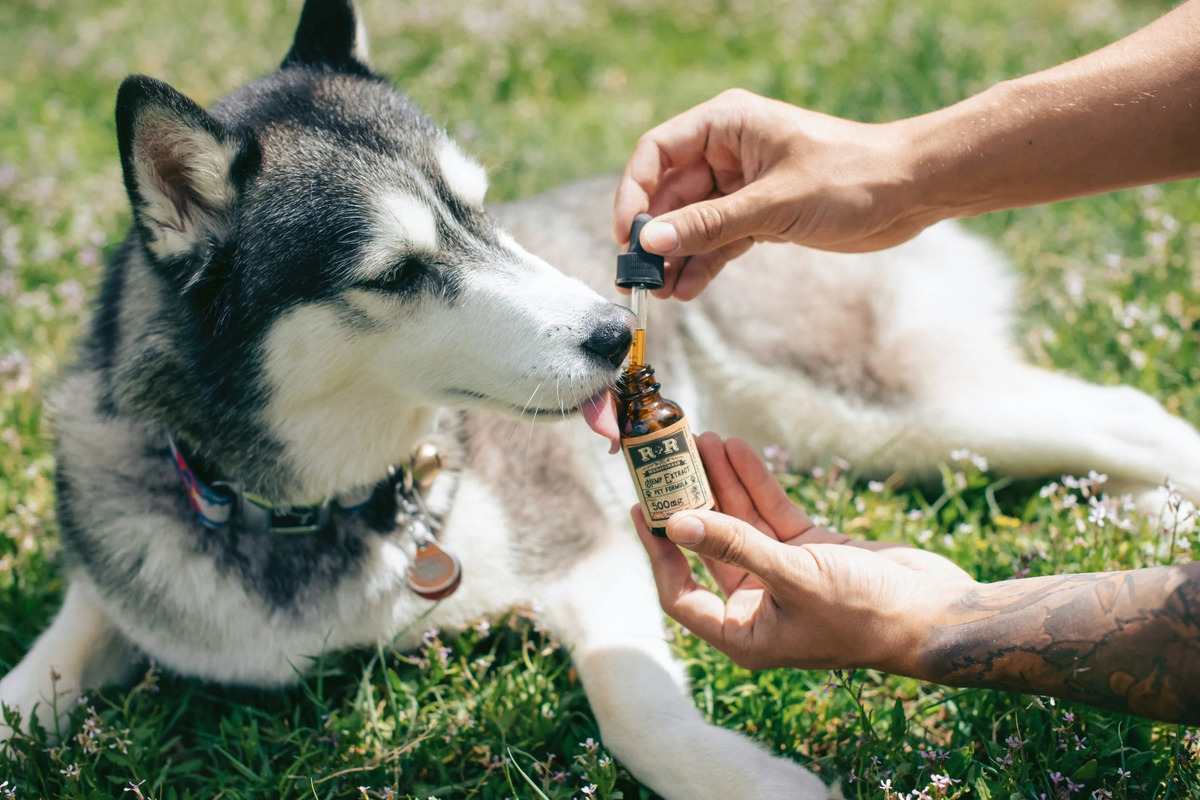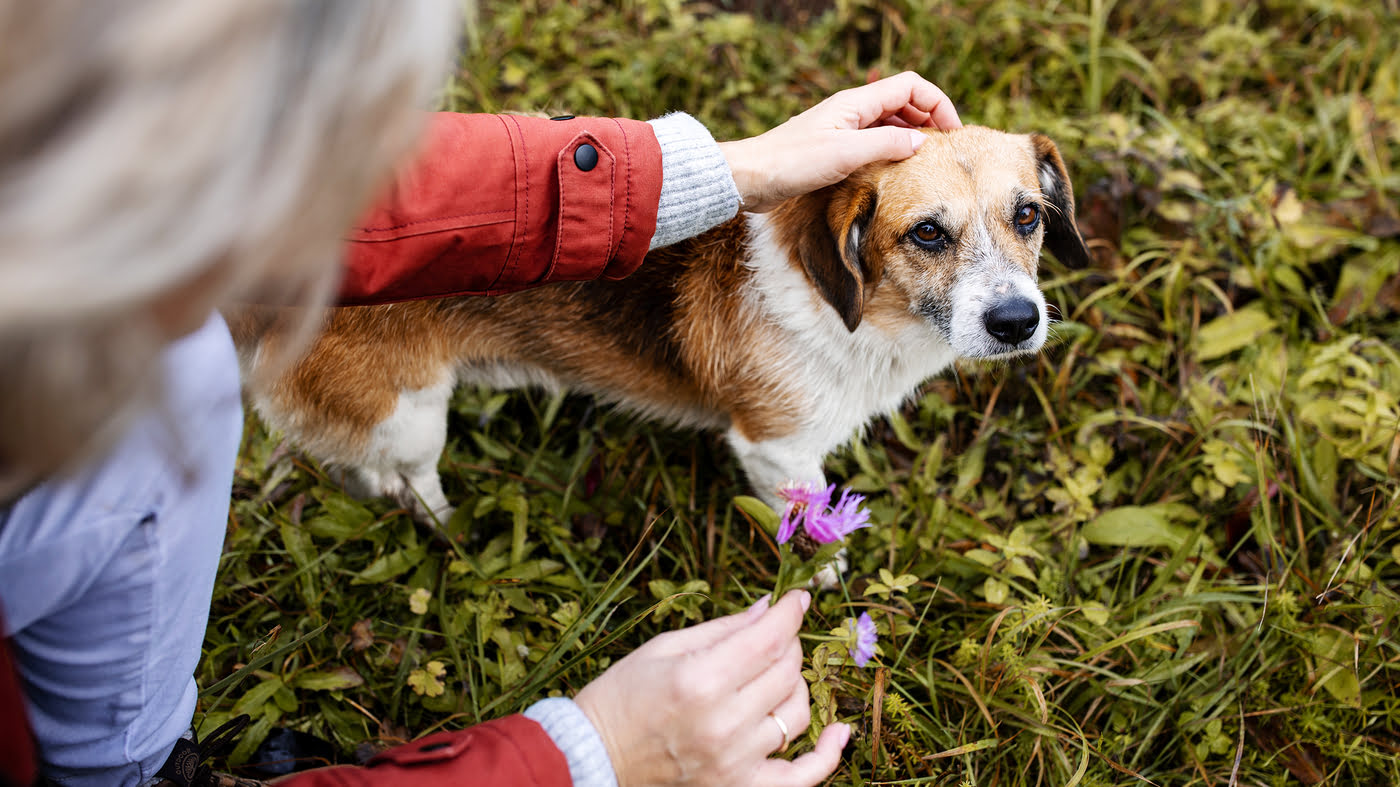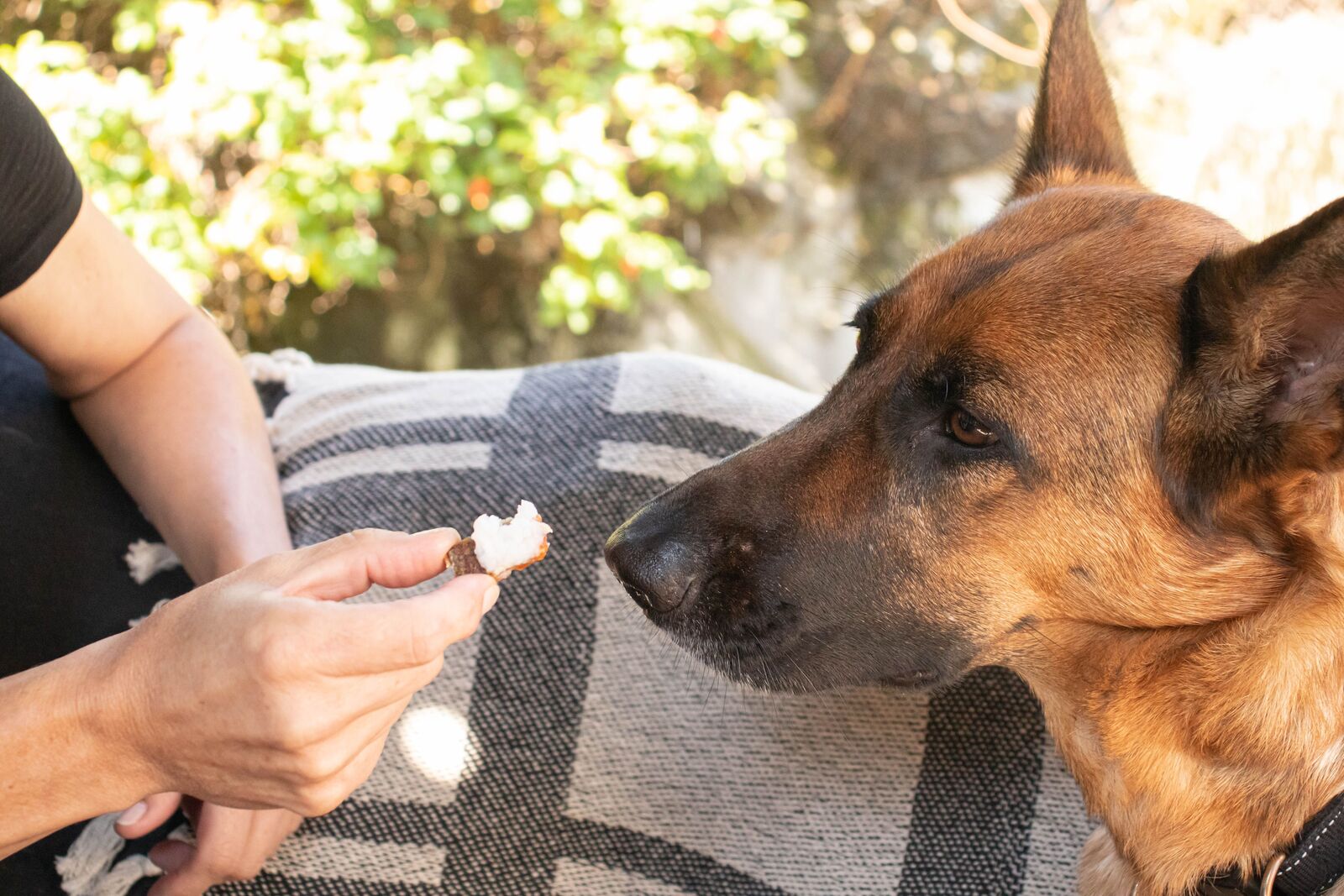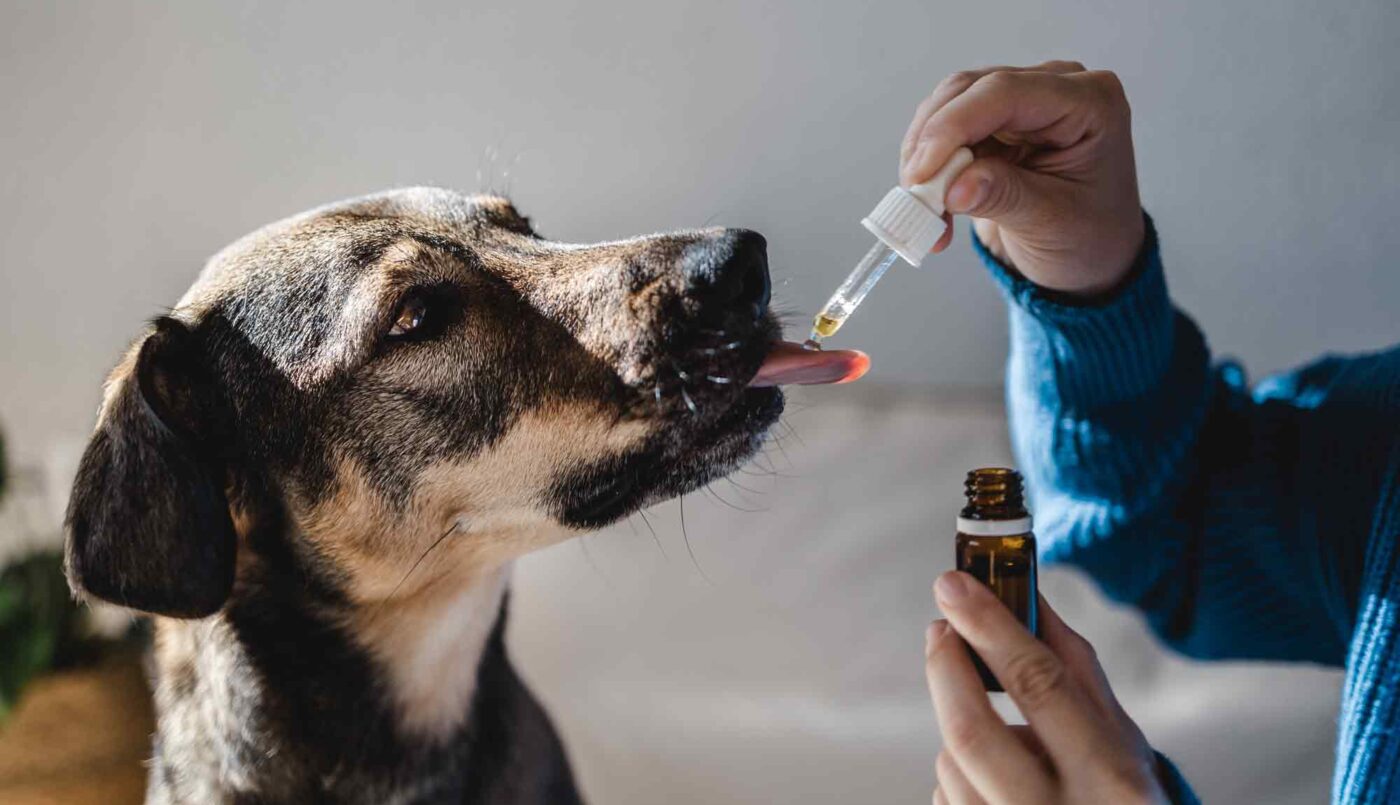Home>Health & Wellness>Behavior & Cognitive Care>How To Use Lavender Essential Oil For Anxiety In Dogs
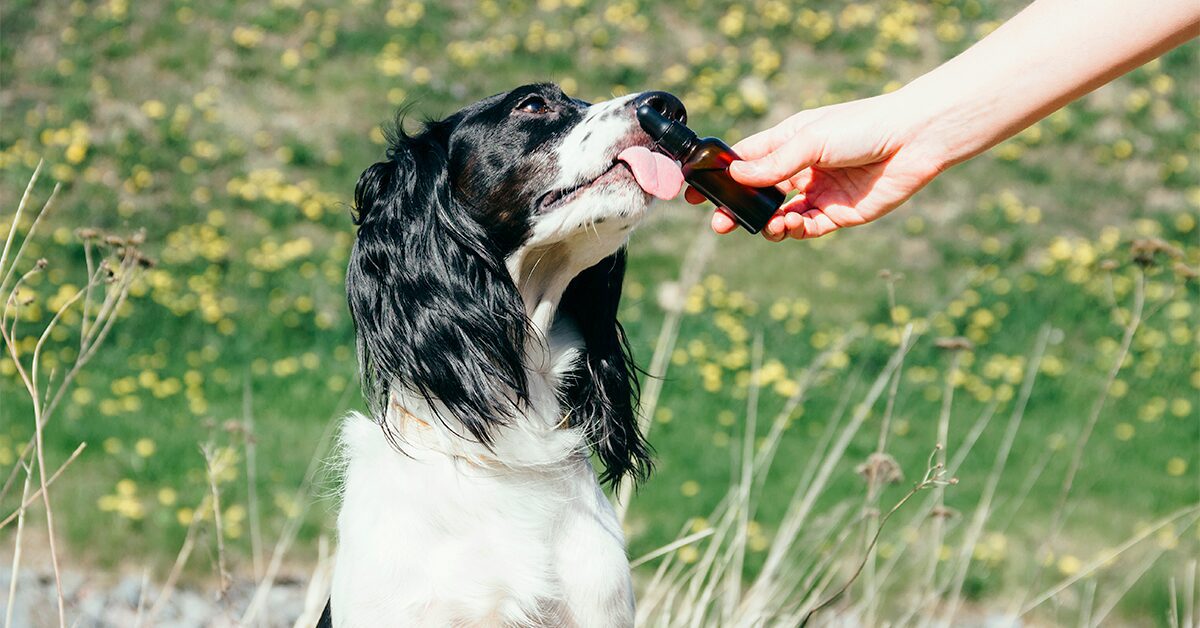

Behavior & Cognitive Care
How To Use Lavender Essential Oil For Anxiety In Dogs
Published: January 29, 2024
Discover how to use lavender essential oil to calm your dog's anxiety and improve their behavior and cognitive care. Learn effective techniques for using this natural remedy.
(Many of the links in this article redirect to a specific reviewed product. Your purchase of these products through affiliate links helps to generate commission for Pawsomeoldies.com, at no extra cost. Learn more)
Table of Contents
Introduction
When it comes to our furry companions, their well-being is a top priority. Dogs, like humans, can experience anxiety, which can manifest in various ways, such as excessive barking, destructive behavior, or withdrawal. As pet owners, it's essential to understand the signs of anxiety in dogs and explore effective ways to alleviate their distress.
One natural and increasingly popular approach to calming canine anxiety is the use of lavender essential oil. Lavender, known for its soothing properties in humans, can also offer similar benefits to our canine friends. This aromatic oil has been recognized for its calming effects, making it a promising option for managing anxiety in dogs.
In this comprehensive guide, we will delve into the nuances of anxiety in dogs, the potential benefits of lavender essential oil in alleviating their distress, and the best practices for using this natural remedy. By understanding the science behind lavender essential oil and its potential impact on canine anxiety, pet owners can make informed decisions to support their furry companions' emotional well-being.
Understanding the potential of lavender essential oil as a natural remedy for canine anxiety requires a closer look at the physiological and behavioral indicators of anxiety in dogs. By exploring the intricate connection between lavender essential oil and canine well-being, pet owners can gain valuable insights into promoting a calm and balanced state for their beloved pets.
Understanding Anxiety in Dogs
Anxiety in dogs is a complex and multifaceted condition that can significantly impact their overall well-being. Just like humans, dogs can experience a wide range of anxiety-related symptoms, which may manifest in various behaviors. It's crucial for pet owners to recognize these signs and understand the underlying causes to provide appropriate support for their furry companions.
Signs of Anxiety in Dogs
Identifying anxiety in dogs involves observing their behavior and physical cues. Common signs of anxiety in dogs include excessive barking, whimpering, or howling, along with destructive behaviors such as chewing furniture or excessive digging. Additionally, dogs may exhibit restlessness, pacing, or attempts to escape, especially during thunderstorms or fireworks displays. Some dogs may also display signs of aggression or withdrawal when experiencing anxiety.
Causes of Anxiety in Dogs
Several factors can contribute to anxiety in dogs, including past traumatic experiences, lack of socialization, changes in routine, or separation from their owners. Environmental stressors such as loud noises, unfamiliar surroundings, or the presence of other animals can also trigger anxiety in dogs. Furthermore, underlying health issues or genetic predispositions can play a role in the development of anxiety-related behaviors in dogs.
Impact on Canine Well-being
Anxiety can have a profound impact on a dog's overall well-being, affecting their physical health and emotional stability. Prolonged anxiety can lead to increased cortisol levels, which may compromise the immune system and contribute to various health issues. Moreover, chronic anxiety can diminish a dog's quality of life, leading to decreased appetite, disrupted sleep patterns, and a diminished sense of security.
Behavioral Responses
Dogs may exhibit a range of behavioral responses when experiencing anxiety, including seeking comfort from their owners, attempting to escape or hide, or displaying heightened vigilance. Understanding these behavioral cues is essential for pet owners to provide appropriate support and intervention to help alleviate their dog's anxiety.
By gaining a deeper understanding of anxiety in dogs, pet owners can proactively address their furry companions' emotional well-being. This knowledge forms the foundation for exploring potential remedies, such as the use of lavender essential oil, to help mitigate anxiety and promote a sense of calm for dogs in distress.
Benefits of Lavender Essential Oil for Anxiety
Lavender essential oil is renowned for its calming and soothing properties, making it a promising natural remedy for alleviating anxiety in dogs. The potential benefits of lavender essential oil stem from its aromatic compounds, which have been studied for their effects on the nervous system and emotional well-being of animals. Here are the key benefits of using lavender essential oil to address anxiety in dogs:
1. Calming Effects:
Lavender essential oil is known for its ability to promote relaxation and reduce stress, both in humans and animals. When diffused or applied topically with proper dilution, the gentle aroma of lavender can create a tranquil environment, helping to ease a dog's anxious state and promote a sense of calm.
2. Stress Reduction:
The aromatic compounds in lavender essential oil have been shown to have stress-reducing effects, which can be particularly beneficial for dogs experiencing anxiety. By diffusing lavender oil in the home environment or using it in a calming massage, pet owners can potentially help their dogs manage stress and anxiety triggers more effectively.
3. Emotional Support:
Lavender essential oil may provide emotional support for dogs during challenging situations, such as thunderstorms, fireworks, or separation anxiety. The soothing scent of lavender can serve as a comforting presence, offering reassurance and stability to dogs feeling distressed or unsettled.
4. Natural Relaxant:
As a natural relaxant, lavender essential oil can help promote relaxation and alleviate tension in dogs. This can be especially beneficial for dogs prone to nervousness or hyperactivity, as the gentle aroma of lavender may help them unwind and feel more at ease in their surroundings.
5. Promotes Restful Sleep:
Anxiety in dogs can disrupt their sleep patterns, leading to restlessness and fatigue. Lavender essential oil's calming properties may support better sleep quality for dogs, contributing to their overall well-being and emotional balance.
Incorporating lavender essential oil into a dog's wellness routine, under the guidance of a veterinarian, can potentially offer these benefits and contribute to a more relaxed and emotionally stable state for dogs experiencing anxiety. It's important to note that while lavender essential oil shows promise in supporting canine anxiety, individual responses may vary, and cautious use and proper dilution are essential to ensure the well-being of our beloved furry companions.
How to Use Lavender Essential Oil for Dogs
Introducing lavender essential oil into a dog's wellness regimen requires careful consideration and a mindful approach to ensure its safe and effective use. When used appropriately, lavender essential oil can serve as a natural aid in alleviating anxiety and promoting a sense of calm for dogs. Here's a comprehensive guide on how to use lavender essential oil for dogs:
1. Aromatherapy:
A popular method for using lavender essential oil is through aromatherapy. Pet owners can diffuse the oil in a well-ventilated area where their dog spends time, such as the living room or bedroom. Using a high-quality diffuser, a few drops of lavender essential oil can create a gentle and calming aroma that may help soothe an anxious dog.
2. Topical Application:
When diluted properly with a carrier oil, such as coconut or olive oil, lavender essential oil can be applied topically to a dog's skin. This method requires careful consideration of the appropriate dilution ratio, typically one to two drops of essential oil per ounce of carrier oil. A small amount of the diluted mixture can be gently massaged into the dog's fur, particularly on the chest or back, allowing the calming scent of lavender to provide a sense of comfort.
3. Calming Spray:
Creating a lavender essential oil calming spray offers a convenient way to provide anxiety relief for dogs. By combining a few drops of lavender essential oil with water in a spray bottle, pet owners can lightly mist their dog's bedding, crate, or favorite resting areas. This method allows for the subtle diffusion of the calming scent, potentially creating a more tranquil environment for the dog.
4. Bath Time Soother:
For dogs who find bath time stressful, incorporating lavender essential oil into the bathing routine can offer a calming experience. A few drops of lavender essential oil can be added to a dog-friendly shampoo or diluted in water for a final rinse. The gentle aroma of lavender may help ease the dog's anxiety during the bathing process, promoting a more relaxed and enjoyable experience.
5. Consultation with a Veterinarian:
Before using lavender essential oil or any new wellness approach for a dog, it's crucial to consult with a veterinarian. A professional veterinary opinion can provide valuable guidance on the safe and appropriate use of lavender essential oil based on the dog's individual health, temperament, and any existing medical conditions.
By incorporating these methods and seeking professional advice, pet owners can explore the potential benefits of lavender essential oil in supporting their dog's emotional well-being. It's important to approach the use of essential oils for dogs with mindfulness and care, ensuring that the methods chosen align with the dog's comfort and safety. With proper use and consideration, lavender essential oil can be a valuable tool in promoting a calm and balanced state for dogs experiencing anxiety.
Precautions and Considerations
When considering the use of lavender essential oil for dogs, it is essential for pet owners to prioritize the well-being and safety of their furry companions. While lavender essential oil offers potential benefits in alleviating anxiety, it is crucial to approach its use with mindfulness and consideration for the unique needs of each dog. Here are important precautions and considerations to keep in mind:
1. Dilution and Dosage:
Lavender essential oil should always be diluted before use on dogs. Undiluted essential oil can be too potent and may cause skin irritation or adverse reactions. The recommended dilution ratio is typically one to two drops of essential oil per ounce of carrier oil, such as coconut or olive oil. Additionally, it's important to adhere to appropriate dosage guidelines to prevent overexposure to the oil's aromatic compounds.
2. Allergies and Sensitivities:
Just like humans, dogs can have allergies or sensitivities to certain substances, including essential oils. Before using lavender essential oil on a dog, it's advisable to perform a patch test by applying a small amount of the diluted oil to a small area of the dog's skin and observing for any adverse reactions. If any signs of irritation or discomfort occur, discontinuing use is recommended.
3. Veterinary Consultation:
Prior to incorporating lavender essential oil into a dog's wellness routine, consulting with a veterinarian is crucial. A professional veterinary opinion can provide valuable insights into the suitability of using lavender essential oil based on the dog's health status, existing medical conditions, and potential interactions with other medications. This consultation ensures that the use of lavender essential oil aligns with the dog's overall well-being.
4. Monitoring Behavioral Responses:
Observing the dog's behavioral responses to the introduction of lavender essential oil is essential. While many dogs may positively respond to the calming effects of lavender, some individuals may not exhibit the desired relaxation or may show signs of aversion to the scent. Monitoring the dog's behavior and comfort level allows pet owners to make informed decisions regarding the continued use of lavender essential oil.
5. Safe Storage and Application:
Lavender essential oil should be stored securely and out of reach of pets to prevent accidental ingestion. When applying the oil, it's important to avoid contact with the dog's eyes, nose, and mouth. Additionally, pet owners should ensure that the dog has the option to move away from the scent if they find it overwhelming or unpleasant.
By taking these precautions and considerations into account, pet owners can approach the use of lavender essential oil for their dogs with attentiveness and care. Prioritizing the safety and well-being of the dog while leveraging the potential benefits of lavender essential oil allows for a balanced and responsible approach to supporting canine emotional wellness.
Conclusion
In conclusion, the well-being of our canine companions is intricately linked to their emotional stability and overall mental health. Anxiety in dogs can manifest in various distressing behaviors and may stem from a range of triggers, including environmental stressors, past experiences, or changes in routine. Recognizing the signs of anxiety in dogs and exploring effective interventions is crucial for supporting their emotional well-being.
The potential benefits of lavender essential oil in alleviating anxiety in dogs offer a natural and holistic approach to promoting a sense of calm and emotional balance. Through its calming and soothing properties, lavender essential oil has the potential to create a tranquil environment, reduce stress, and provide emotional support for dogs experiencing anxiety. When used mindfully and in consultation with a veterinarian, lavender essential oil can serve as a valuable tool in supporting canine emotional wellness.
By understanding the nuances of anxiety in dogs and the potential impact of lavender essential oil, pet owners can make informed decisions to support their furry companions' emotional well-being. It's important to approach the use of lavender essential oil with mindfulness, considering the unique needs and sensitivities of each dog. Prioritizing proper dilution, cautious application, and attentive monitoring of the dog's responses ensures a responsible and safe approach to using lavender essential oil for anxiety relief.
Incorporating lavender essential oil into a dog's wellness routine, alongside positive reinforcement, environmental enrichment, and behavioral training, can contribute to a comprehensive approach to managing canine anxiety. Additionally, seeking professional guidance and monitoring the dog's comfort and behavioral responses are essential aspects of using lavender essential oil as a natural remedy for anxiety in dogs.
Ultimately, the well-being of our beloved canine companions is a multifaceted responsibility that encompasses physical, emotional, and mental aspects. By embracing natural remedies such as lavender essential oil and prioritizing the emotional wellness of our dogs, we can create a nurturing and supportive environment that fosters a sense of calm and security for our furry friends. Through knowledge, compassion, and a holistic approach to canine care, we can empower ourselves to provide the best possible support for our dogs' emotional well-being.

